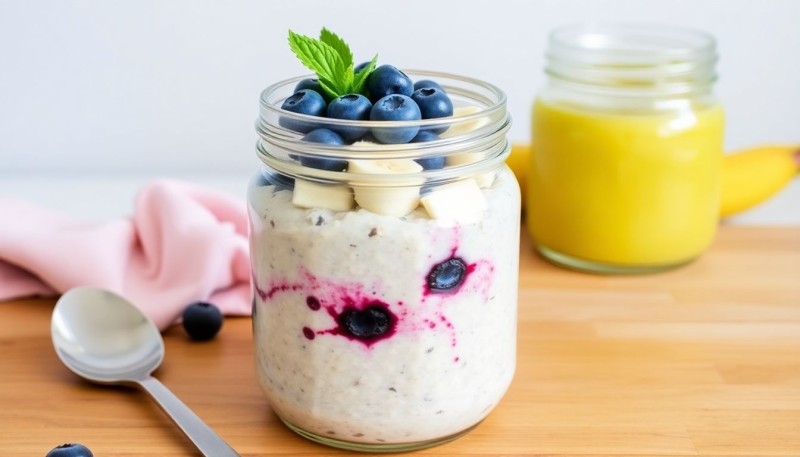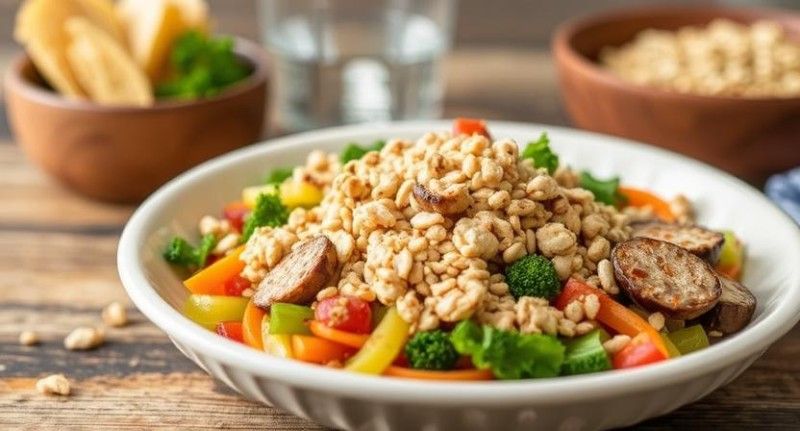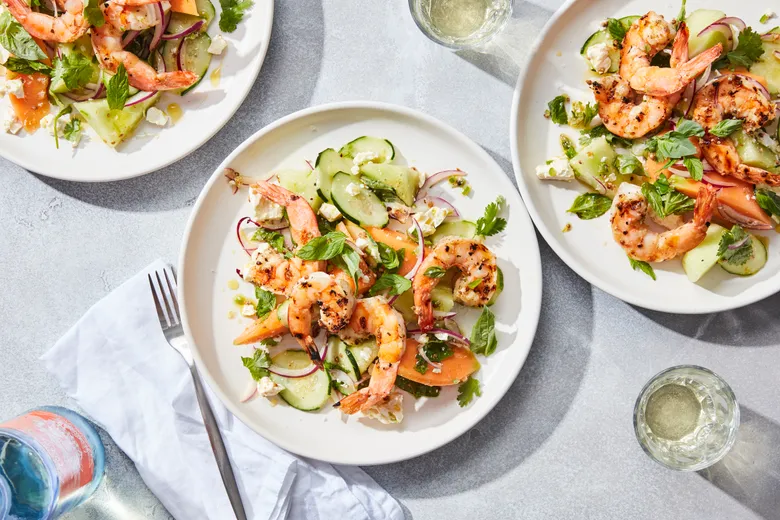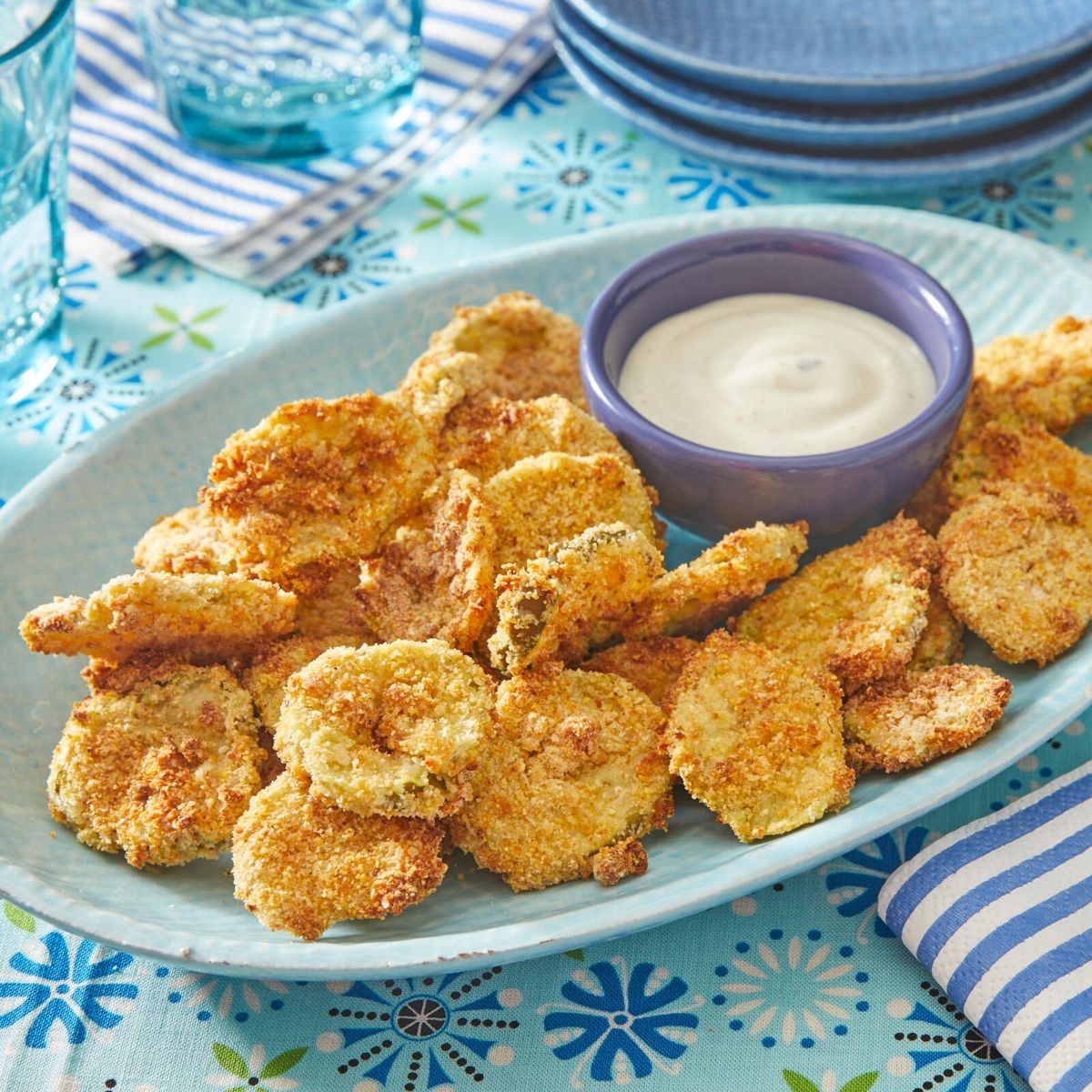Often linked to a gut-healthy diet is good use of fiber to assist in maintaining good digestion, weight control, and heart health. Every serving of these breakfast dishes has at least 6 grams of fiber from sources like oats, pears, and raspberries. High fiber breakfast foods for digestion plus, they're also loaded with gut-healthy foods like bananas, kefir, and yogurt, which can help combat signs of inflammation and maintain brain function. Recipes such as our meal-prep-friendly Overnight Oats with Chia Seeds and our Raspberry Yogurt Cereal Bowl are so excellent you'll be eager to rise in the morning!
What is fiber?
A healthy diet calls for fiber. There are many benefits of this nutrient; one of the finest methods to include it in your day is by having a simple high-fiber morning meal. Found in the structure of plant-based meals, fiber is an indigestible substance. Your body cannot break it down. Many of your body's functions, including your heart and digestive system, benefit from fiber. Dietary fiber comes in two types: soluble and insoluble. Dissolving soluble fiber in fluids produces a gel that slows down food movement through the digestive tract. Many fruits, vegetables, and legumes contain soluble fiber, including.
Read also: When Does Sonic Stop Breakfast
The advantages of fiber for you
Eating fiber has a few benefits. Eating lots of fiber helps to accelerate your intestines. Whole grains with insoluble fiber go swiftly through your intestines and tell your body you are full. Fiber also helps to avoid fluctuations in your blood sugar levels that might make you hungry shortly after eating. Both of these fiber-related outcomes assist you in preventing overindulging. Much like a scrub brush, fiber cleans your gut out. Fiber clears buildup and germs in your intestines. This vitamin also helps produce gentle, regular bowel motions. A diet higher in fiber helps your body combat diabetes and heart disease as well as decreases your cholesterol. The advantages go beyond that. A high-fiber diet can also reduce your risk of getting several types of cancer, including colon cancer.
How much fiber is required?
Add five to their age if someone is between the ages of three and eighteen. The sum is how many grams of fiber they require per day. A ten-year-old, for instance, needs 15 grams per day. People over 18 should aim for 20–30 grams of fiber per day. Add fiber gradually to your diet if you don't already consume much of it daily rather than doing it all at once. To prevent constipation, gas, and bloating from too much fiber and not enough hydration, drink lots of water. Your body will become used to bigger quantities as you consume more fiber. You should have no trouble with the daily recommended amount.
1. Blueberry-Banana Overnight Oats

Sweet banana, blueberries, and creamy coconut milk mix to transform ordinary oatmeal into the greatest vegan overnight oats! To have convenient grab-and-go breakfasts all week, make up to four jars at once and store them in the fridge.
2. Nuts, Seeds, and fiber.
A lot of people avoid nuts and seeds as they are often quite calorie- and fat-rich. However, they could be excellent sources of other vitamins and fiber. Simply keep the servings small. One ounce of almonds provides 3.5 grams of fiber. Salads, cereal, or yogurt benefit from chopped nuts or seeds added. Alternatively, for a good afternoon snack, savor a handful of roasted nuts or seeds.
3. Lemon-Blueberry Overnight Oats
Layered with creamy oats and a sweet blueberry syrup, these lemon-blueberry overnight oats are topped with fresh blueberries and lemon zest to unite the tastes. Frozen blueberries are also good, but for the syrup's proper texture, you'll need 2¼ cups frozen blueberries, 3 tablespoons + 2 teaspoons maple syrup, and 1½ tablespoons lemon juice.
Read also: Best Breakfast Foods For Glowing Skin
4. Kiwi-Granola Breakfast Banana Split
We give a traditional dessert a breakfast-friendly twist by replacing yogurt with ice cream. Strained yogurt's thicker texture—Greek-style or skyr, for example—helps it retain its form and resemble scoops of ice cream. Moreover, compared to ordinary yogurt, it offers greater protein for staying power. The mushy banana is well texturally looked at by several seeds and nuts.
5. Overnight Oats with Chia Seeds

Though any chopped fresh or frozen fruit works great here, this simple overnight oats with chia seeds dish is naturally sweetened with peaches. As the mixture settles, chia seeds thicken it and provide a good amount of omega-3 fats and fiber. For a simple breakfast on the run, keep these oats in separate airtight containers—like a mason jar.
6. Bircher Muesli
Bircher muesli, named for a Swiss doctor, includes fresh apple, lemon juice, and almonds. Chia seeds were added to this revitalizing mix to increase omega-3 fatty acids and fiber; we end our version with an array of fresh berries for color and taste.
7. Beet Smoothie with Anti-Inflammatory Properties
This colorful beet smoothie offers a well-balanced taste by mixing sweet and earthy beets with berries, banana, and orange juice. Search for packaged cooked beets where the ready fruits and vegetables are sold. Beets are rich in betalains, an antioxidant that might reduce bodily inflammation. Other nutrient-rich parts increase anti-inflammatory strength even more, such as those found in blueberries and the gingerol in ginger.
8. Enjoy Whole Grains with Dinner

Pick brown rice over white. Alternatively, provide noodles made from whole grains. Try cooking with millet, quinoa, or bulgur—whole grains rich in fiber—for a change. Adding fiber to your diet can also help you control your weight by helping you feel fuller longer. These meals require more chewing, which allows your body more time to register fullness.
9. Flaxseed
With 2.8 grams per tablespoon, the seed of the flax plant may be a great source of fiber. Though research indicates it might also help reduce cholesterol, blood pressure, and blood sugar levels, flaxseed is usually used as a laxative. Include whole or ground flaxseeds in other baked products or breads. Alternatively, scatter powdered flaxseed over cooked veggies or mix it into a smoothie.
Read also: Easy Sausage & Cheese Egg Boats Recipe
10. Cherry-Spinach Smoothie with Anti-Inflammatory Properties
Apart from being tasty, this nutritious smoothie increases your regular intake of anti-inflammatory nutrients. Starting with a foundation of creamy, gut-friendly kefir, it adds cherries, which can reduce the inflammatory marker C-reactive protein. While spinach provides a combination of antioxidants that sweep up damaging free radicals, heart-healthy fats like avocado, almond butter, and chia seeds provide extra anti-inflammatory chemicals to the body. Fresh ginger not only provides zest but also gingerol, a chemical whose daily use could, according to early research, lower inflammatory indicators linked to heart disease.
11. Acai Bowl
Any day of the week, this homemade acai bowl recipe produces a tasty breakfast. Acai may be sour; hence, mixing it with banana, coconut water, and mixed berries helps to sweeten it and offset the taste. Depending on your tastes, feel free to change the toppings.
12. High-Fiber Raspberry-Vanilla Overnight Oats
Start your day off healthily with these raspberry-vanilla overnight oats. This grab-and-go meal offers 8 grams of fiber as well as probiotics from kefir that might assist in maintaining a healthy digestive tract. Though any of your preferred berries or chopped fresh fruit would work nicely, we really enjoy luscious fresh raspberries to round off this simple meal.
Conclusion on High Fiber Breakfast Foods For Digestion
One of the easiest yet most powerful methods to promote your digestive health is to begin your day with high-fiber breakfast foods. Fiber not only keeps you feeling full longer, but it also encourages regular bowel movements, helps balance blood sugar levels, and feeds the healthy bacteria in your stomach. High fiber breakfast foods for digestion including fiber-rich selections in your morning routine may significantly affect how your body works over the day, whether you select oatmeal, whole-grain toast, fresh fruits, or chia seed puddings. To prevent digestive pain, keep in mind to raise fiber progressively and consume lots of water. A fiber-filled breakfast may turn into a delicious and beneficial habit that establishes a healthy tone for the rest of your day with some forethought.
FAQs: High-Fiber Breakfast Foods for Digestion
What breakfast food has the most fiber?
-
Chia Pudding. Chia seeds are exceptionally high in fiber, providing nearly 10 grams per ounce.
-
Sweet Potato Toast.
-
Vegetable and Avocado Omelet.
-
Breakfast Salad.
-
Breakfast Tacos.
-
Smashed Beans on Toast.
-
Vegan Sweet Potato and Chickpea Hash.
-
Almond Flour Blueberry Muffins with Almond Butter.
What is the best breakfast for digestion?
Generally advised is a breakfast high in fiber and probiotics, coupled with some healthy fats and lean protein, for digestion. Among good options are whole-grain toast with banana and egg, Greek yogurt with honey and fruit, and oatmeal with nuts and berries.
How can I increase fiber in breakfast?
You may increase your fiber use by selecting a higher-fiber morning cereal, such as plain whole wheat biscuits (like Weetabix) or plain sliced whole grain (like Shredded Wheat) cereal, since oats are also a rich source of fiber.
What four foods are rich in fiber?
High-fiber food examples are dark chocolate, chia seeds, oats, cruciferous vegetables, strawberries, and kidney beans. Fiber has several prospective health advantages, including reducing blood sugar, limiting constipation, and boosting heart health.


.jpg)






